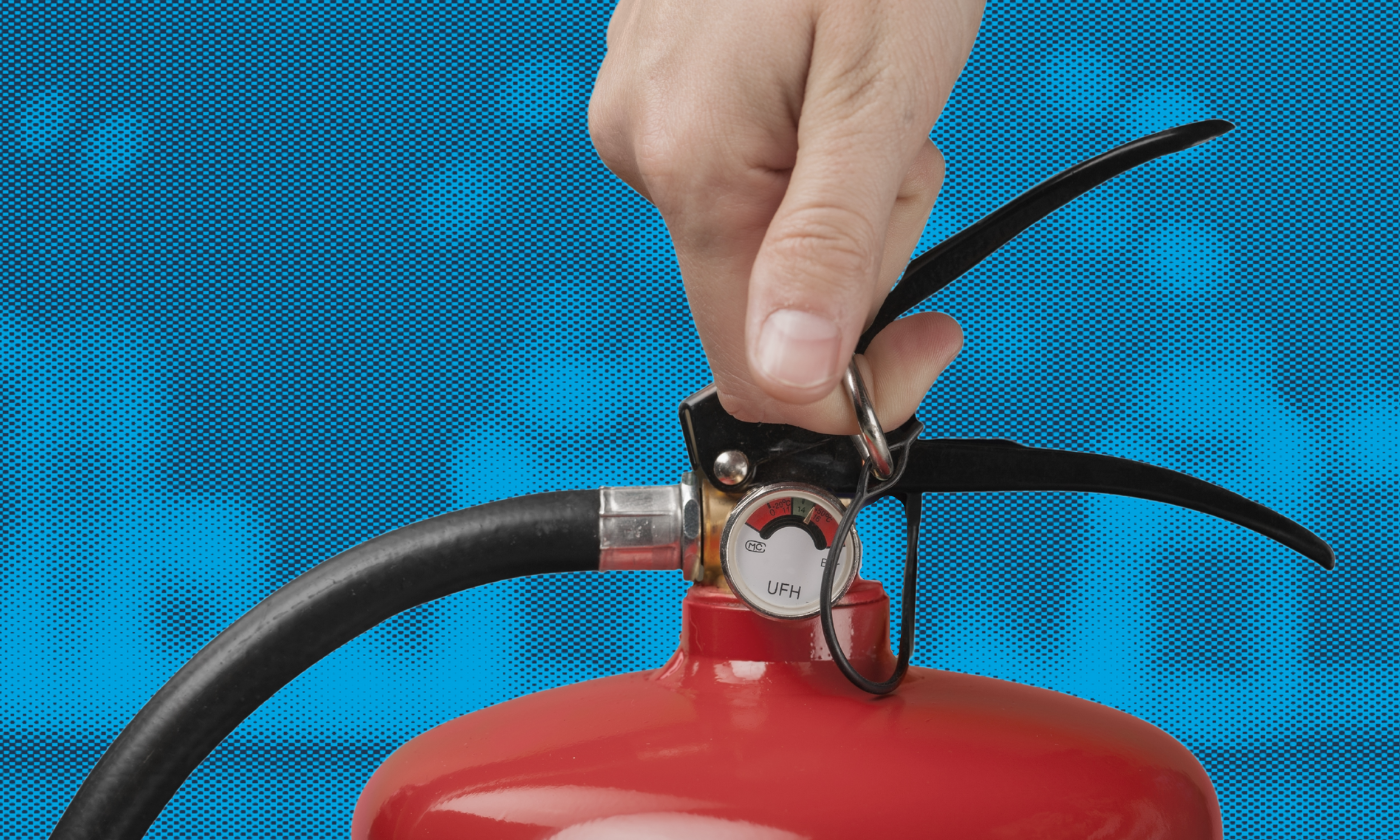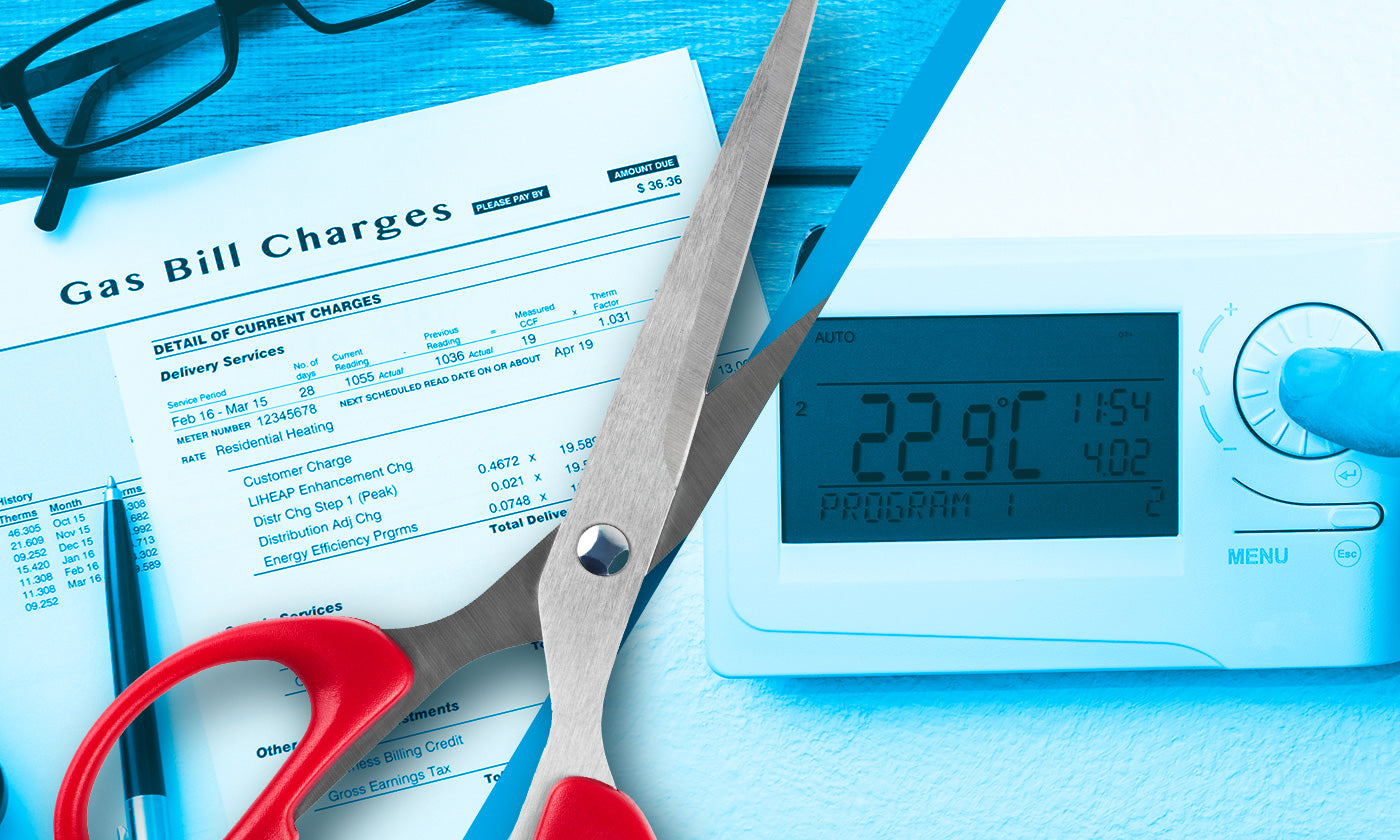天然ガスの微妙な違いについては頻繁に議論されており、天然ガス漏れが発生した場合に警戒を怠らず、備えておくことの重要性が強調されています。しかし、多くの人が天然ガス漏れの兆候を見分ける方法や、自宅で漏れに気付いたときに何をすべきかを知っている一方で、最悪の事態が発生した場合にどう対処するかについても理解しておく必要があります。
天然ガス漏れの危険性は、火災などの望ましくない結果につながる可能性があります。天然ガス漏れ火災はまれですが、それでも発生しており、適切に管理されなければすぐに制御不能になる可能性があります。天然ガス火災は、以下を含むさまざまな原因で発生します。
- 天然ガス器具が不適切に使用、設置、またはメンテナンスされた場合
- バーナー、点火装置、パイロットランプの故障
- 温度管理が不十分
- コネクタやパイプが外れたり壊れたりしている
- 道路から家まで伸びるガス管が古くなったり、錆びたり、損傷したりしている
天然ガスの漏れにより火花が散り、引火して火災が発生することもあります。
天然ガス漏れ火災の原因がわかったところで、消火手順を学んであらゆるシナリオに備える方法を説明します。
天然ガス漏れによる火災を止める方法
天然ガス火災の危険が差し迫っている場合、またはすでに発生している場合は、炎を制御するために細心の注意を払って対処する必要があります。以下の手順に従ってください。
- ガスの供給を止めます。火に触れる危険がある場合は、ガスを止めようとしないでください。安全であれば、天然ガス漏れ火災が発生している器具またはエリアへのガス供給を止めます。燃料の流れを遮断すると、火を消しやすくなります。ただし、破損したガス管から天然ガスが漏れている場合は、バルブを閉じても必ずしもガスが止まるとは限りません。
- その場から避難してください。通常の天然ガス漏れの場合と同様に、あなたとその家の全員が避難し、安全な距離に避難したら専門家に連絡して残りの作業を任せてください。火事が小さくて封じ込められている場合でも、全員がその部屋やその場から立ち去らなければなりません。火事がない場合は、ドアを開けたままにして、現場の空気を換気してください。ただし、天然ガス漏れが火災にまで拡大した場合は、ドアを閉めて避難してください。
- 助けを求めてください。別の方法(炎を消す、重曹を使うなど)で火を消すことができない場合は、緊急サービスに連絡してください。電力会社にはガスを安全に止める設備があり、消防署はエリアを検査して天然ガスの漏れや火災の危険がないかどうかを確認できます。
- 適切な消火器を使用してください。可能であれば、消火器があればそれを使って火を消してください。すべての消火器が同じ火災に対応できるわけではないので、緊急時には必ず適切な消火器を使用するように再確認してください。
- 天然ガス漏れ火災はクラス C とみなされます。これらの火災には、水消火器や泡消火器ではなく、ABC または BC 粉末消火器が必要です。これらはクラス A の火災、または木材、干し草、石炭などの固体で溶けない物質から発生する火災にのみ有効です。
- そのまま待機してください。避難したら、資格のある専門家から戻る許可が出るまで待つ必要があります。
天然ガスの火災を消すのに間違った方法を使用すると非常に危険であり、状況を悪化させる可能性があります。
家庭における天然ガスの安全性
あなた自身と他の人の安全のために、天然ガスの緊急事態に対処する方法を知っておくことは不可欠です。天然ガスの火災に遭遇しないように、または少なくとも火災をすぐに止める方法を知るために、これらの天然ガスの安全に関するヒントに従う必要があります。天然ガスの漏れを防ぐことは火災のリスクを回避するための最善の防御策であるため、誰もが天然ガス警報器を装備する必要があります。
天然ガスは、他の多くの潜在的に危険な物質と同様に、制御されていれば、広く普及しているのと同じくらい無害です。天然ガス火災の危険を避けるには、可燃物を炉、給湯器、その他のガス器具から遠ざけてください。
天然ガス検知器は、共用エリアと天然ガス器具のある部屋の両方に設置する必要があります。天然ガス警報器の理想的な設置場所は、天井から 12 インチ以内、天然ガス器具から 3 ~ 10 フィートの距離です。これらの装置は、天然ガス漏れの可能性を住民に警告するため、音が聞こえる場所に設置する必要があります。
天然ガス検知器を長期間使用するために、定期的な監視とメンテナンスが不可欠です。検知器を電気系統に差し込んだり、手動で配線したりする場合は、バンプ テストで適切に機能することを確認し、必要に応じて再調整してください。または、専門家に依頼して調整してもらうこともできます。
天然ガスは無色無臭なので、あなたとあなたの大切な人を守るために、迅速かつ正確な警告を発する天然ガス漏れ警報器が必要です。DeNova Detect は、米国で唯一の住宅用電池式天然ガス警報器で、電池と製品の耐用年数は 6 ~ 10 年が保証されています。高度なセンサー技術により、これらの装置は他の天然ガス検知器よりも最大 11 分早くガス漏れを住民に警告できます。
信頼できる天然ガス漏れ検知器があるとすれば、それは DeNova Detect です。DeNova Detect 製品の詳細については、 天然ガス安全ブログをご覧いただくか、 support@denovadetect.comまでお問い合わせください。





コメントを書く
このサイトはhCaptchaによって保護されており、hCaptchaプライバシーポリシーおよび利用規約が適用されます。